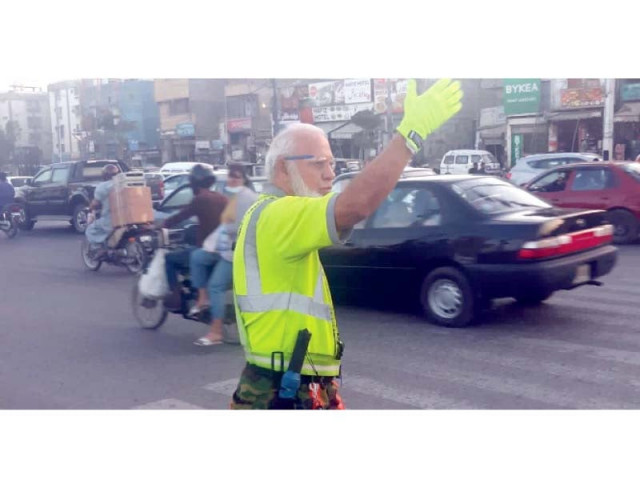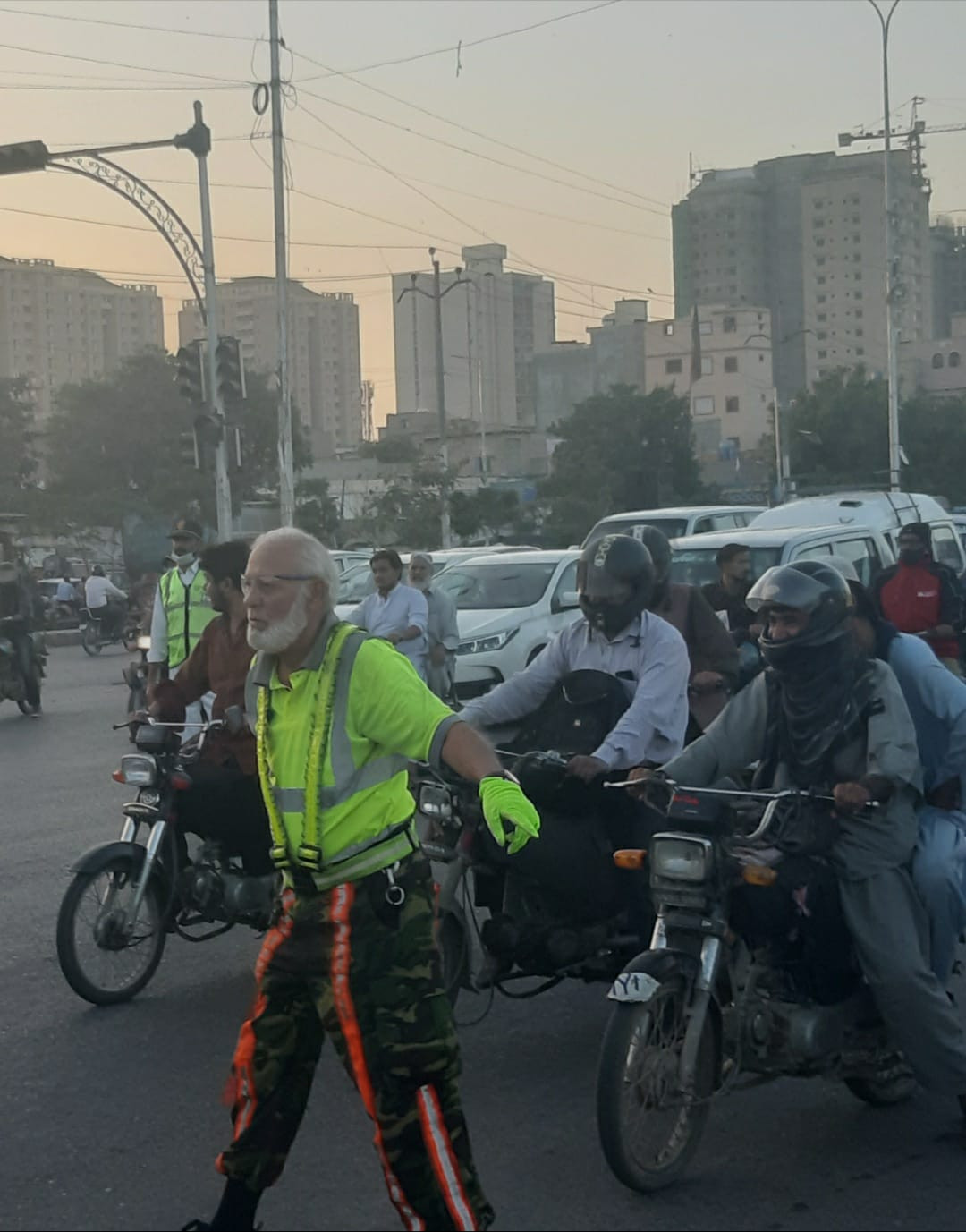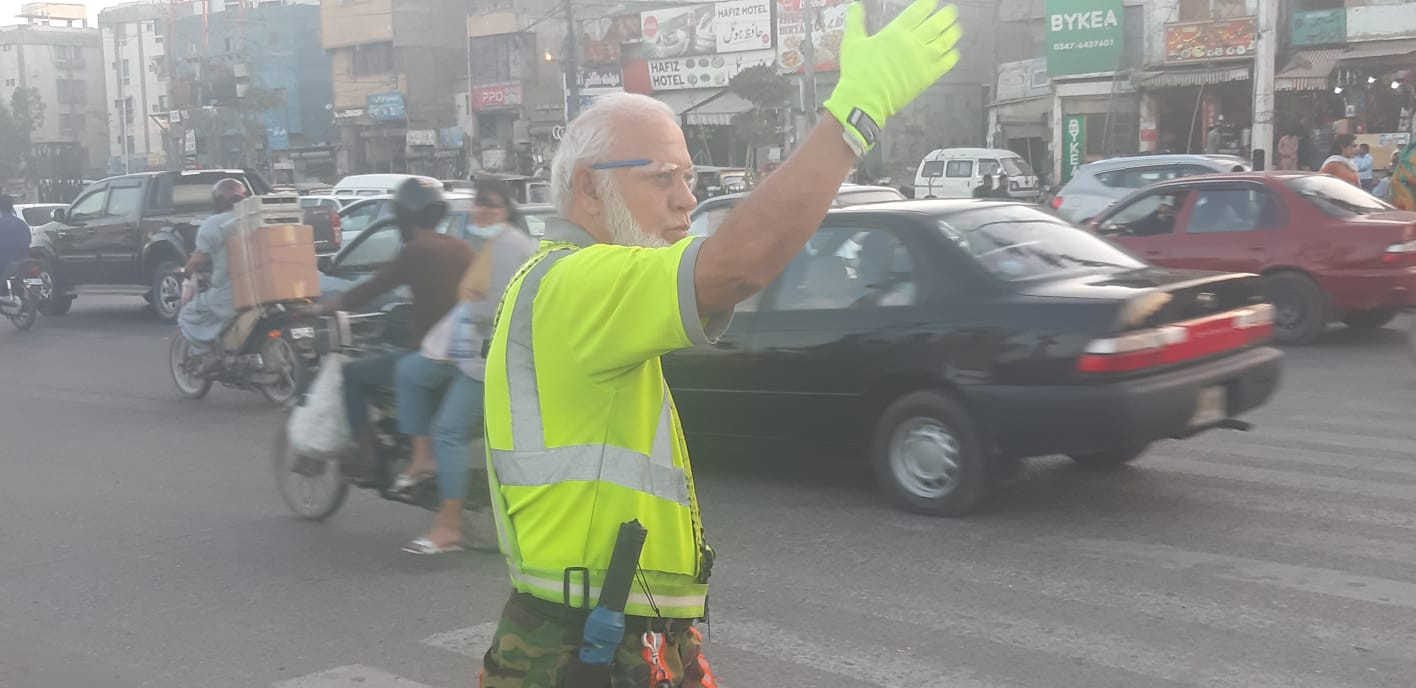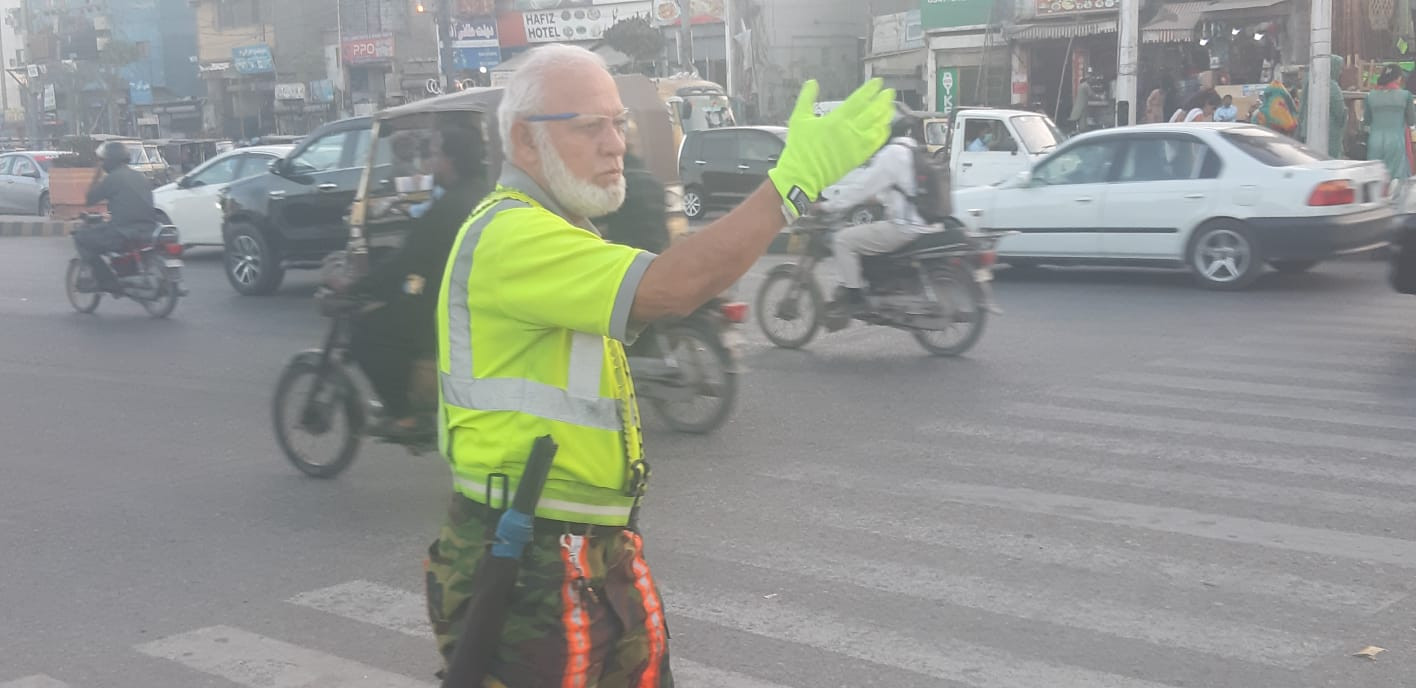The gridlock killer of South district
Waving LED stick in one hand and signalling traffic by the other, Raja is often taken for an actual police officer

In a city where gridlocks and traffic congestions are frequent, Raja Pakistani is often found on choked roads, aiding the overwhelmed traffic police in making way for the relentlessly honking vehicles.
Sometimes, it’s like solving the most complex puzzle, other times it is a lone breakdown that has brought the entire highway to a halt, but there is little Raja earns from this but a sense of self-satisfaction and at times, the fleeting gratitude of the commuters.
“I have been doing this for years, but ever since I retired in 2017, it has become a daily routine for me,” said the elderly man, whose real name is Raja Arshad Ali. “I remain glued to the television screen, tracing tickers for any news of major gridlocks. If I come across any, I put on my traffic kit, kick-start my motorcycle and reach the site as fast as I can to help out,” he added, explaining his modus operandi.

PHOTO: EXPRESS
The 65-year old, who’s come to be known as Raja Pakistani in district South, spends over six to eight hours every day, roaming the city’s most chaotic streets, including Kalapul, Defence Morr, Qayyomabad, Teen Talwar, Boat Basin and nearby areas, mitigating traffic without asking for anything in return.
Clad in a neon-green vest and military trousers, waiving a LED stick in one hand and signalling traffic from the other, Raja is often taken for a professional police officer manning the fear streets of Karachi.
“I am just a volunteer and my priority is getting emergency vehicles like ambulances out of congested traffic and on to their way,” he said, adding that he’s camps close to the National Medical Centre in DHA Phase One, from 4:00 PM to 10:00 PM on most days. “It’s a central location, so I can instantly jet to any traffic jam in any area of the district south,” he opined.
Recalling major incidents that had seized traffic for hours, Raja spoke of a bomb that had been planted right outside the gates of Jinnah Post Graduate Medical’s Centre’s Emergency Department a few years ago.

PHOTO: EXPRESS
In addition to that, he also mentioned a blast close to Kalapul and an oil tanker that overturned in DHA Phase Two. In all of these situations, the good Samaritan was out on the streets, aiding the panicked people and overburdened traffic staff for more than 12 hours, to maintain a steady flow of traffic.
Born to a Naval Police Officer in Jehlum in 1957, Raja believes that his drive to help his country in whatever way he can come from the services of his father. While Karachi, being the city of his youth and one where he pursued his education, holds a special place in his heart.
“I still remember the day when an MNA, Maulana Azam Tariq, chief of the Millat E Islami was killed in Islamabad in 2003 and there were huge protests in Karachi causing severe traffic jams. People got stuck for hours. I was returning from the oil refinery, where I used to work and something in my clicked when I saw the scene. I couldn’t help but park my motorcycle by the sidewalk and started managing the traffic with the police at Qayyomabad Chowrangi. We continued the job till roads were smooth in midnight then left for home,” he said, recalling the first time he aided traffic.

PHOTO: EXPRESS
“It filled me with a sense of satisfaction seeing ambulances make their way, and I could tell myself that day that I had done something to save lives,” he added.
Speaking further, Raja opined that in his experience, he has seen a growing disregard for traffic rules in the last thirty years there, and found commuters to always be in a rush to get somewhere. However, when manning the streets, Raja also makes sure to keep an eye out for any rule breakers.
“Whenever anyone violates the law, breaks a signal, travels without a seatbelt or helmet, I stop them and issue a warning and then let them go because I have no power, but to remind them about their fault,” he told.
According to the good Samaritan who has been keeping gridlocks at bay in Karachi’s district south, more often than not traffic congestion starts because Karachi lacks optimised traffic management and no one enforces existing road traffic laws.
He was of the view that lack of parking zones, public buses, proper education about traffic rules, and radio guides for alternate routes were among the chief reasons for traffic jams in the port city.
“Nothing will change until we citizens realize our own responsibility about things and laws are implemented in letter and spirit,” he remarked while speaking to The Express Tribune.
Published in The Express Tribune, March 1st, 2022.


















COMMENTS
Comments are moderated and generally will be posted if they are on-topic and not abusive.
For more information, please see our Comments FAQ